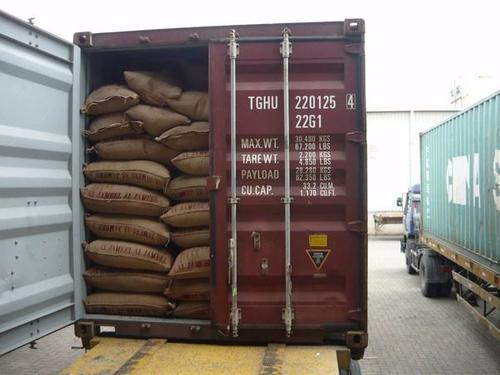I recently asked a coffee merchant what is the most important part of his business. Without hesitation the word FINANCE was emphatically declared.
It is well known that trading margins continue to be squeezed across the board. Merchants constantly look at ways to modernize and gain efficiency to eke out a few more points of saving in both overhead and “passed through” costs to be more competitive.
But perhaps the most important component is the health and happiness of their credit lines!
With price volatility swinging widely over the last five years, proper financing is key to smoothing out the spikes that have seen as much as tripling.
Beneficially, we are witnessing a historic period of prolonged depressed interest rates. Translation: financing is relatively inexpensive and offers the merchant some welcomed opportunities.
Therefore, the wise merchant looks to protect this most coveted tool. How?
First, the underpinning to all such loans is the coffee itself – the collateral. It is of utter importance to make certain it is well protected by a broad form specialized cargo policy.
No, not all cargo policies are created equal. A close look should focus on broad attachment following the financial interest of the merchant, continuous coverage from origin through to delivery to roaster, all risk perils including coffee specific perils, and a well conceived basis of valuation that serves to put you back to where you were before the loss occurred.
The most nuanced of coverages – theft – also becomes one of the most important in respect to coffee policies. From beginning and ending responsibilities for coffee stolen in transit, to large stocks fraudulently disappearing at origin warehouses every CEO and banker alike are looking to know exactly how their collateral is covered. Once again, the coverage possibilities run the gamut. The key here is to look for those pesky exclusions!
Secondly, how does your bank gain protection for its collateral under your policy?
Often times I receive requests from merchants asking to add their bank as an additional insured to their cargo policy. My reply is always that a specially constructed Bank Letter and Loss Payment Endorsement might serve the bank better and provide even more comfort.
The Bank Letter contains an extract of the salient and material clauses of the merchant’s policy. It will demonstrate the period, the limits, the basic terms and conditions, and the security. It cuts through the many additional coverages and benefits to give the banker the basics it needs to demonstrate the required coverage of their collateral.
Then, there is the Loss Payment Endorsement. This document has a very special role.
In nearly all versions, it recognizes that the Bank has an interest in the goods and formally adds the bank to the policy. It provides reassurance to the bank that if any material change occurs to the coverage that the bank will be notified a specified number of days prior to the change taking affect.
All should contain some language on how and when it will respond in the event of loss: either automatically to pay the loss payee or when the loss payee asserts its interest in the goods lost.
But, this is where the generalities end as loss payment endorsements have dramatically changed through the years. In fact, more and more, we see insurers adopting more of a property approach to this venerable endorsement eroding the protections previously relied upon.
The broadest and most beneficial will contain a clause that states “this insurance, as to the interest of the Bank, shall not be rescinded, impaired, nor invalidated by any act or neglect of the Policyholder nor by failure to comply with any of Policy terms or condition over which the Bank has no control.”
Finally, you should look for wording which provides impunity to the bank from any payment of premium.
This turns the Loss Payment Endorsement into a powerful no-fault cover for the bank. Additionally, you can see how this simple sentence might put the bank into a much stronger position versus an additional insured endorsement where the bank might otherwise be subject to the same treatment as the Coverholder.
In this day and age, when merchants are looking for that competitive edge, wouldn’t this be that little extra that should put you in line for extra special consideration with your banker?
Article originally published in Tea & Coffee Trade Journal.













